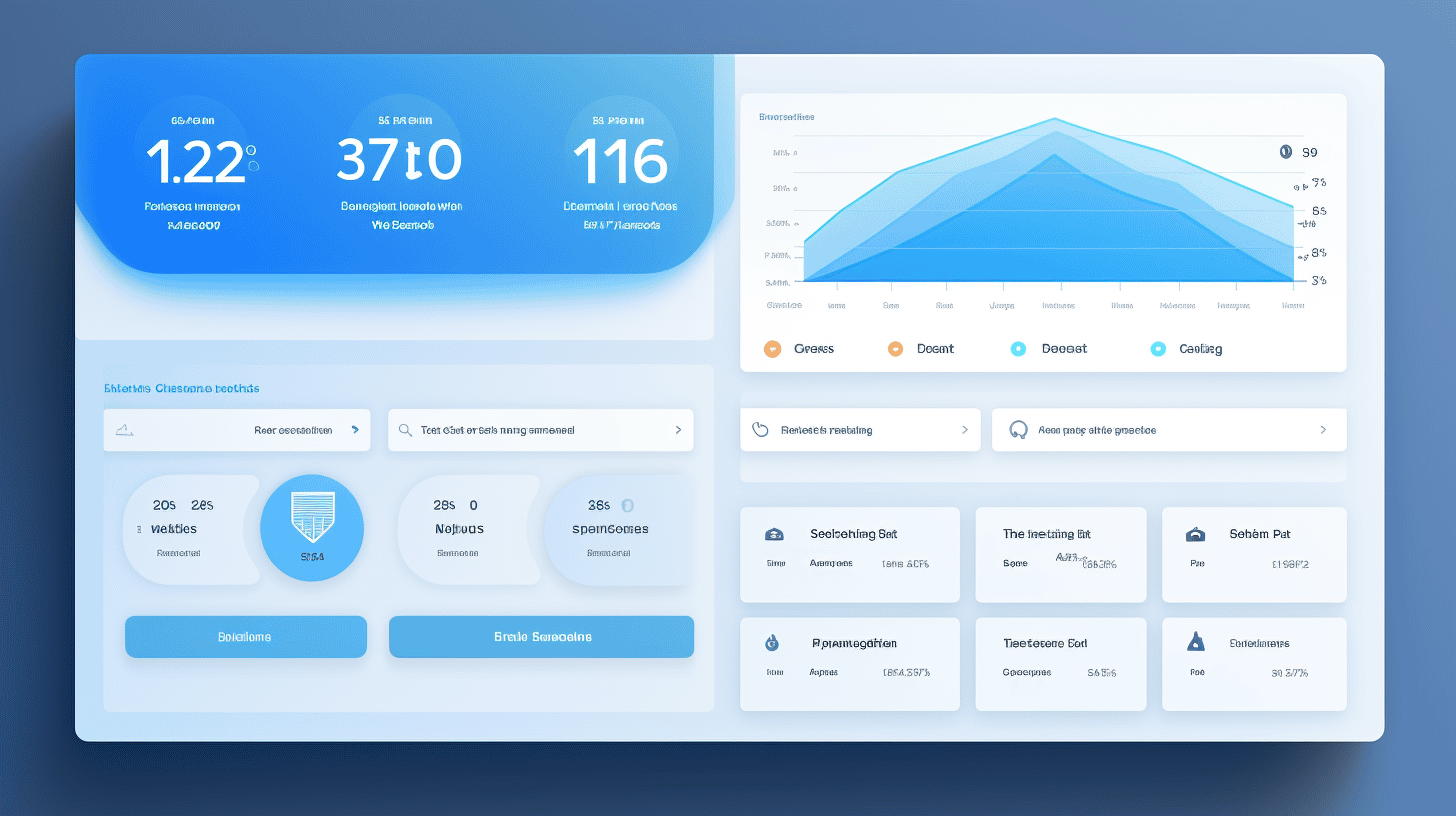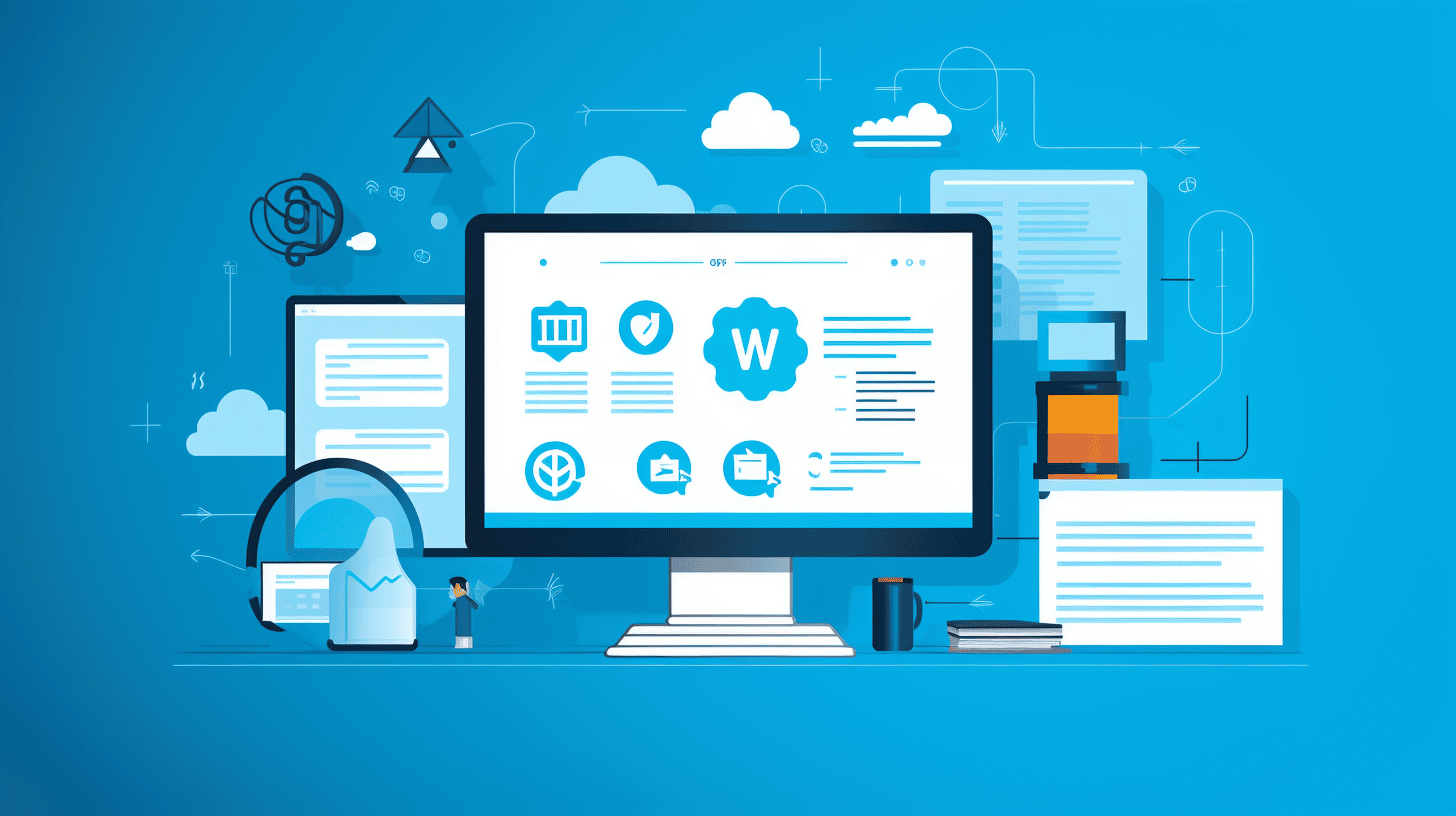>
WordPress has emerged as one of the most powerful and versatile content management systems (CMS) globally, empowering millions of websites across diverse industries. Its user-friendly interface, extensive customization options, and robust community support have made it a preferred choice for beginners and seasoned developers alike. 🌐 Whether it’s a personal blog, an e-commerce platform, or a corporate website, WordPress adapts seamlessly to meet a wide range of needs.
However, managing a WordPress website comes with its own set of challenges, particularly when it comes to security and maintenance. With its immense popularity, WordPress often becomes a target for cyber threats, making proactive management essential. This article delves into the key aspects of WordPress website management, offering insights into its dominance in the CMS market, growth trends, security challenges, and effective strategies to ensure a seamless and secure experience. 🛡️
By understanding the nuances of WordPress management and adopting best practices, users can overcome their fears and harness the full potential of this powerful platform. Whether one is launching a new site or optimizing an existing one, this guide provides actionable tips to navigate the world of WordPress with confidence. 🚀
WordPress Dominance in the CMS Market
>
🚀
WordPress continues to solidify its position as the undisputed leader in the Content Management System (CMS) market. With its unparalleled flexibility, user-friendly interface, and extensive plugin ecosystem, it has become the go-to choice for individuals and organizations alike. Let’s dive into the numbers that highlight its dominance.
Market Share in 2023 📊
As of 2023, WordPress boasts an impressive 63.1% market share, leaving its competitors far behind. This staggering figure underscores its popularity and reliability as a CMS. Whether you’re a blogger, small business owner, or enterprise, WordPress caters to a wide range of needs, making it the preferred platform for millions.
Usage Among Top Websites 🌍
WordPress isn’t just for small-scale projects; it’s also trusted by some of the world’s most prominent websites. 14.7% of the top 100 most popular websites rely on WordPress for their online presence. This includes renowned brands, news outlets, and influencers, showcasing its ability to handle high traffic and complex functionalities seamlessly.
Global Adoption Statistics 🌐
The global reach of WordPress is nothing short of remarkable. It supports 179 languages, making it accessible to users across the globe. In 2024, WordPress powers over 861 million websites, a testament to its scalability and adaptability for diverse industries and regions. Its open-source nature has fostered a vibrant community that continuously drives innovation and growth.
WordPress’s dominance in the CMS market is a reflection of its commitment to empowering users with tools to create, manage, and scale their digital presence effortlessly. Its widespread adoption across industries and geographies cements its position as the backbone of the modern web. 🌟
WordPress Growth and Usage Trends
>
WordPress has established itself as a dominant force in the world of content management systems, demonstrating remarkable growth and adaptability over the years. Its evolution is not just a testament to its robust features but also to its ability to cater to the diverse needs of users worldwide. Let’s delve into the key trends that highlight its ongoing success.
Consistent Annual Growth 📈
Since 2011, WordPress has experienced a steady annual growth rate of 12%. This consistent upward trajectory reflects its ability to evolve with changing technological demands while maintaining user satisfaction. Whether it’s small businesses, bloggers, or large enterprises, WordPress has become the go-to platform for creating and managing websites. Its open-source nature, coupled with a vast ecosystem of plugins and themes, ensures that it remains relevant and accessible to users of all skill levels.
Content Creation and Engagement 💬
WordPress is a powerhouse for content creators, with over 70 million posts and 77 million comments published every month. This staggering volume of activity underscores its role as a hub for digital expression and community engagement. Users are not only creating content but also actively interacting with it, making WordPress a dynamic platform for fostering connections. The platform’s intuitive interface and versatile tools empower creators to share their ideas seamlessly, whether through blog posts, multimedia, or e-commerce integrations.
Blogging Preference 🖋️
When it comes to blogging, WordPress is the undisputed leader, with 97% of all bloggers choosing it as their preferred platform. Its flexibility, scalability, and user-friendly design make it an ideal choice for both amateur writers and professional content creators. The ability to customize themes, optimize for SEO, and integrate with social media ensures that bloggers can reach their audiences effectively. WordPress continues to set the standard for what a blogging platform should offer, making it an essential tool for anyone looking to establish a digital presence.
WordPress’ growth and usage trends highlight its unwavering relevance in the digital landscape. Its ability to adapt, innovate, and meet the needs of its users ensures that it will remain a cornerstone of online content creation for years to come. 🌐
WordPress Security Challenges
>
WordPress, the world’s most popular content management system (CMS), is not immune to security threats. In 2023 alone, 5,948 new vulnerabilities were identified in the WordPress database. This staggering number highlights the evolving nature of cyber threats and the need for website owners to stay vigilant. Common vulnerabilities include unpatched plugins, weak passwords, and outdated core files. Attackers often exploit these weaknesses to gain unauthorized access, inject malicious code, or compromise sensitive data.
📊 Insight: The sheer volume of vulnerabilities underscores the importance of proactive security measures. Regular updates, robust password policies, and vulnerability scanning are essential to mitigate risks.
Importance of Security Measures
Security is not just a luxury but a necessity for WordPress websites. Cyberattacks can lead to data breaches, loss of customer trust, and even financial penalties. Implementing strong security practices ensures the integrity and availability of a website. Measures such as installing a reliable security plugin, enabling two-factor authentication, and regularly backing up data can significantly reduce the risk of attacks.
🔐 Tip: A multi-layered approach to security is the most effective way to protect a WordPress site. Combining preventive measures with active monitoring creates a resilient defense system against potential threats.
By prioritizing security, WordPress users can safeguard their online presence and maintain the trust of their audience.
Effective WordPress Website Management
>
In today’s digital landscape, WordPress powers over 40% of all websites on the internet. With over 500 WordPress websites built daily, ensuring effective management and maintenance has become more critical than ever. Proper management not only enhances performance but also safeguards the website from potential vulnerabilities.
Regular Updates and Maintenance
Keeping a WordPress website up to date is the cornerstone of effective management. Regular updates include the WordPress core, themes, and plugins. These updates often contain security patches, performance improvements, and new features. Neglecting updates can expose a website to security risks, compatibility issues, and slower performance. Website administrators should schedule routine checks to ensure all components are running the latest versions.
Plugin and Theme Safety🔒
Plugins and themes are essential for extending the functionality and design of a WordPress website. However, not all plugins and themes are created equal. It is crucial to use reputable, regularly updated, and well-reviewed plugins and themes. Outdated or poorly coded plugins can introduce vulnerabilities, leading to potential security breaches. Administrators should also limit the number of plugins to only those necessary, as excessive plugins can slow down the website.
Backup Strategies💾
A robust backup strategy is non-negotiable for any WordPress website. Regular backups ensure that, in the event of data loss, hacking, or accidental changes, the website can be quickly restored. Administrators should implement automated backup solutions that store data in secure, off-site locations. Testing backups periodically is also essential to confirm that they can be restored without issues. Remember, a backup is only as good as its ability to restore the website.
By prioritizing regular updates, ensuring plugin and theme safety, and implementing reliable backup strategies, website administrators can maintain a secure, high-performing WordPress site. These practices not only protect the website but also provide peace of mind for its users. 🛡️
Key Security Practices for WordPress Users
>
WordPress powers a staggering 43.1% of all websites using a CMS, making it a prime target for cyber threats. To ensure the safety and integrity of their websites, users must adopt robust security practices. Below are three essential measures to enhance WordPress security. 🛡️
🔐 Strong Passwords and User Permissions
One of the simplest yet most effective ways to secure a WordPress site is by using strong, unique passwords. Passwords should be a combination of uppercase and lowercase letters, numbers, and special characters. Additionally, assigning appropriate user permissions is critical. Administrators should grant access only to trusted individuals, limiting permissions based on their roles. For instance, content editors do not need access to plugin installations or core settings.
🔒 SSL Certificates
An SSL (Secure Sockets Layer) certificate is non-negotiable for WordPress websites. It encrypts data transmitted between the user’s browser and the server, safeguarding sensitive information like login credentials and payment details. Websites with SSL certificates display a padlock icon in the address bar, which not only enhances security but also boosts user trust and improves search engine rankings. Most hosting providers offer free SSL certificates, making it an easy yet impactful security measure.
🛡️ Security Plugins
WordPress users can leverage the power of security plugins to fortify their websites. Plugins like Wordfence, Sucuri, and iThemes Security provide features such as malware scanning, firewall protection, and brute force attack prevention. Regularly updating these plugins ensures users stay protected against the latest vulnerabilities. Additionally, enabling two-factor authentication (2FA) adds an extra layer of security, requiring users to verify their identity through a secondary method, such as a mobile app or SMS code.
Implementing these practices significantly reduces the risk of security breaches, allowing WordPress users to focus on creating and maintaining their websites with confidence. 💻🔒
Future of WordPress
>
WordPress has long been a dominant force in the world of website creation, and its future appears equally promising. As the internet continues to evolve, WordPress remains at the forefront, empowering millions of users with its flexibility, scalability, and user-friendly interface. The platform’s adaptability to emerging technologies and its vibrant community ensure that it will continue to shape the digital landscape for years to come.
Predicted Market Share 📈
By 2025, WordPress is predicted to power 43.6% of all websites, solidifying its position as the most widely used content management system (CMS). This growth is a testament to its reliability and the trust it has garnered from developers, businesses, and bloggers alike. From small personal blogs to large e-commerce platforms, WordPress caters to a diverse range of needs, making it a go-to solution for website creation. Its open-source nature and extensive plugin ecosystem further enhance its appeal, allowing users to customize their sites to meet specific requirements.
Continuous Innovation 🚀
One of the key factors driving WordPress’s sustained success is its commitment to innovation. The platform is constantly evolving, with regular updates introducing new features, performance enhancements, and security improvements. The introduction of the Gutenberg editor and the increasing focus on full-site editing are prime examples of how WordPress is staying ahead of the curve. These advancements not only simplify the website-building process but also enable users to create more dynamic and visually appealing sites. Additionally, WordPress’s integration with emerging technologies such as artificial intelligence and blockchain ensures that it remains relevant in an ever-changing digital landscape.
As WordPress continues to grow and innovate, it remains a powerful tool for anyone looking to establish a strong online presence. Its ability to adapt to user needs and technological advancements ensures that it will remain a cornerstone of the internet for years to come. 🌐
Conclusion
>
Managed WordPress hosting is pivotal for enhancing security and driving the growth of WordPress. Considering the vast opportunities with WordPress CMS, taking expert assistance for WordPress management would safeguard your online presence and ensure a seamless user experience. Experience peace of mind with Managed-WP.™’s premium hosting solutions, specially crafted for WordPress efficiency 👩💻. Start strengthening your WordPress management, today.
Frequently Asked Questions
- What are the key steps to manage a WordPress website effectively?
Effective WordPress website management includes regular updates for themes, plugins, and core files, backing up your site, monitoring performance, optimizing SEO, and ensuring strong security measures like SSL certificates and firewalls.
- How can I improve the security of my WordPress website?
Improve your WordPress website security by using strong passwords, enabling two-factor authentication, installing security plugins, keeping everything updated, using SSL encryption, and regularly scanning for vulnerabilities.
- What are the best plugins for WordPress website security?
The best WordPress security plugins include Wordfence Security, Sucuri Security, iThemes Security, All In One WP Security & Firewall, and Defender Security.
- How often should I back up my WordPress website?
It’s recommended to back up your WordPress website daily or weekly, depending on how frequently you update your content. Use a reliable backup plugin and store backups in a secure offsite location.
- What should I do if my WordPress website gets hacked?
If your WordPress website is hacked, immediately change all passwords, scan for malware using a security plugin, restore from a clean backup, and consult with a security expert if needed. Ensure all software is updated to prevent future attacks.



















